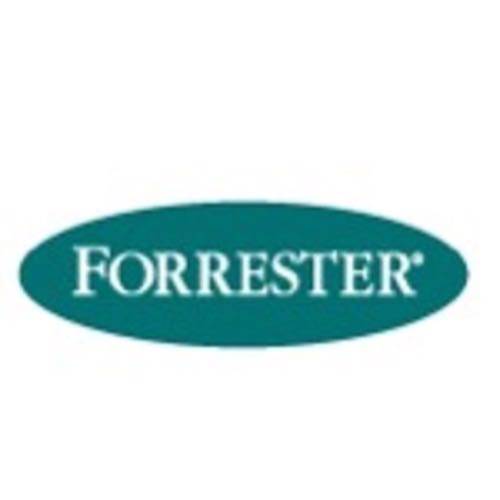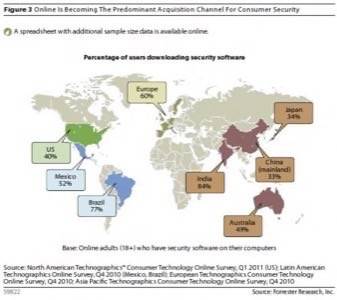A new study from research firm Forrester shows that consumer attitudes towards Internet security are significantly changing. Consumers are now more aware of cyber security and are taking more steps to protect themselves on the Web. At the same time, consumers are gravitating to a select group of security vendors with freeware products dominating the industry.

Forrester used data from its Technographics survey over 16 major world markets to note that users are indeed more savvy about the threats to their computers and what they can do about it. The benefactors are the major players in security, most of which have been operating since the mid-1990s, when the first criminal hacker scare and spam started to weed into the mind share of the Internet populace. Norton, AVG, McAfee were the leaders then and are the leaders now. Yet, the vendors are seeing a lot more churn, with consumers dividing brand loyalty among several different products and suites from the major vendors. Have you become more cognizant of Web security in the last couple of years? What kind of products are you using to protect yourself on the Internet?
Forrester finds that more users are acquiring their security software from the Internet. The days of security products (or any software, really) coming in the form of CD-ROM (which make terrific coasters, ask AOL) or flash drives is coming to a close. This trend is a direct advantage to the freeware security vendors and the Internet Service Providers that host security products in the cloud.

With users experimenting with more free security products and acquiring security via downloads, the security industry is likely to see consolidation of its top vendors in a battle for user retention. This has already started to happen as can be seen when Symantec bought Norton and rolled it into its consumer (as opposed to enterprise) security division. Symantec’s retention rates are some of the best in the industry, which means that Norton has good upside.
Forrester notes that users are not only adopting a variety of security products but are also more aware of security best practices on the Web. Between 300 million and 350 million PCs run freeware.
What is not mentioned by Forrester is which one of these products works the best. All of the top security vendors are experimenting with new products and new ways to trap malware, from server logging and tracking, to virus signatures, white lists, honey pots and more. What Forrester’s research does show is that the security vendors are becoming more creative in the ways they role out their products to avoid churn and improve retention rates. The “who is best” argument is as subjective when it comes to security as consumers are about Coke vs. Pepsi.
According to the research, Norton is the No. 1 global security suite with AVG and McAfee the consensus No. 2 in the ecosystem.

















